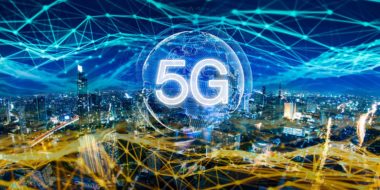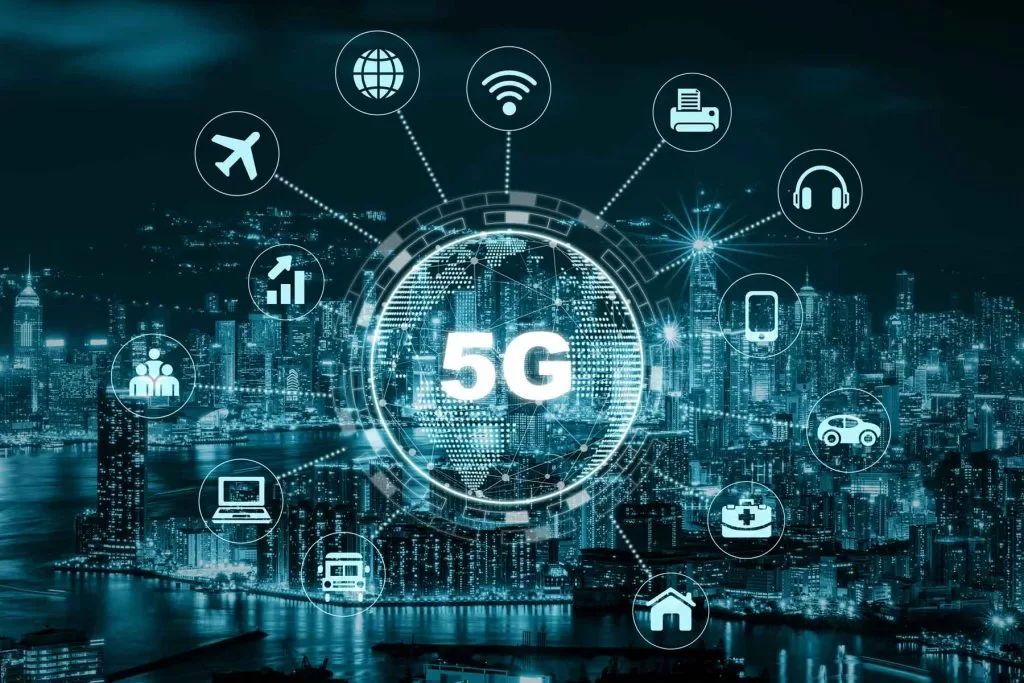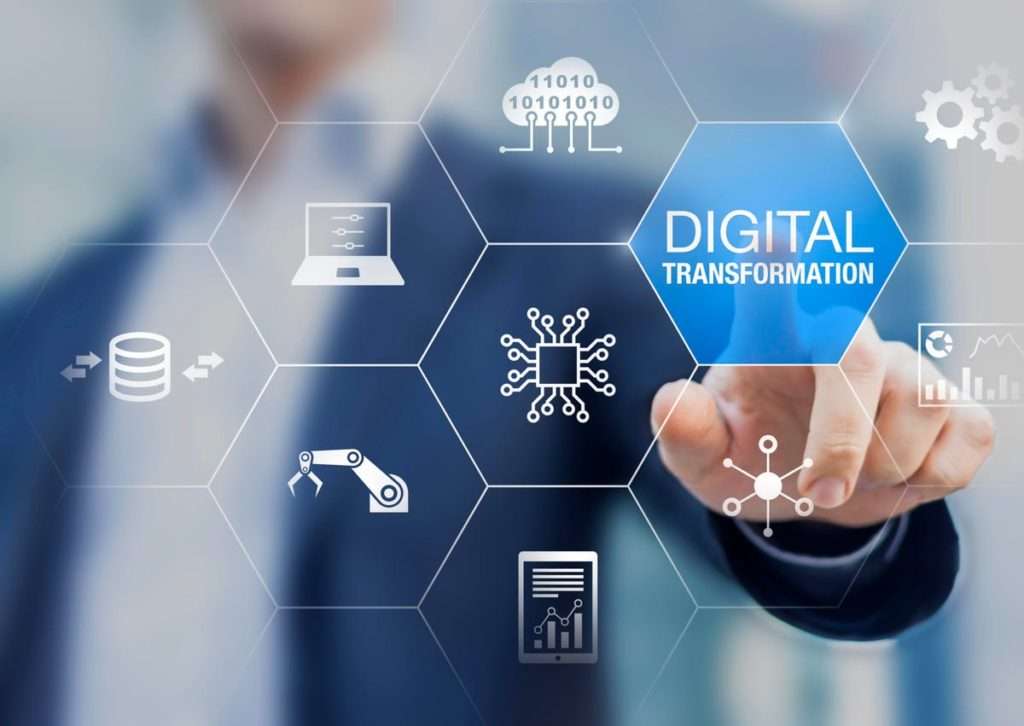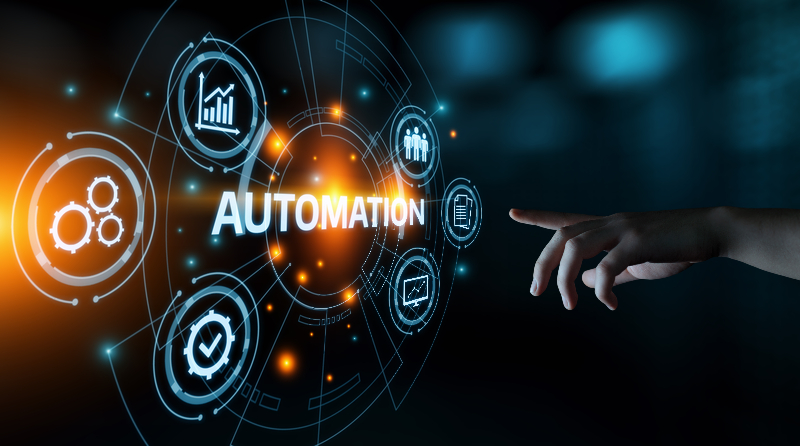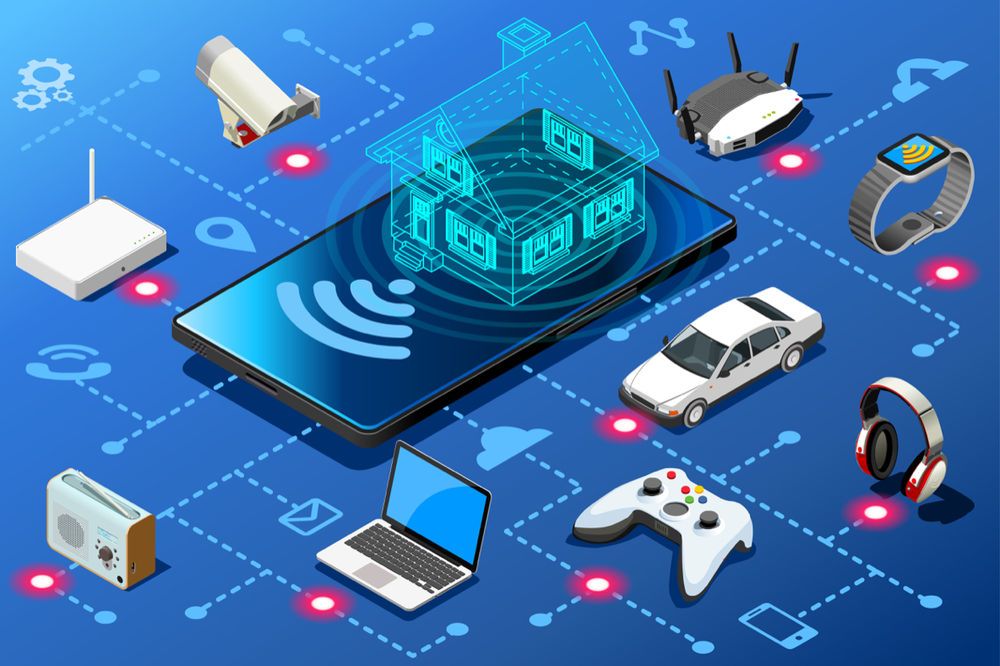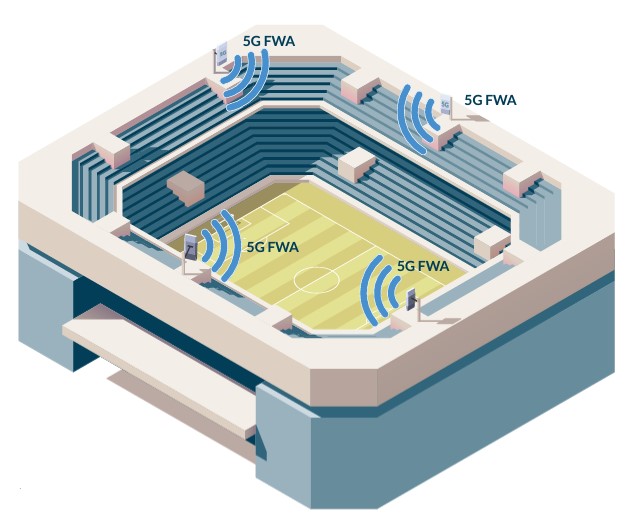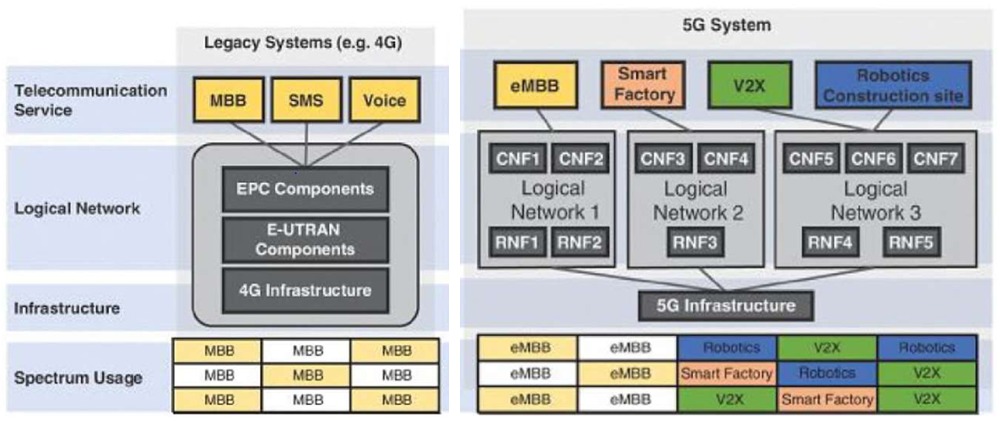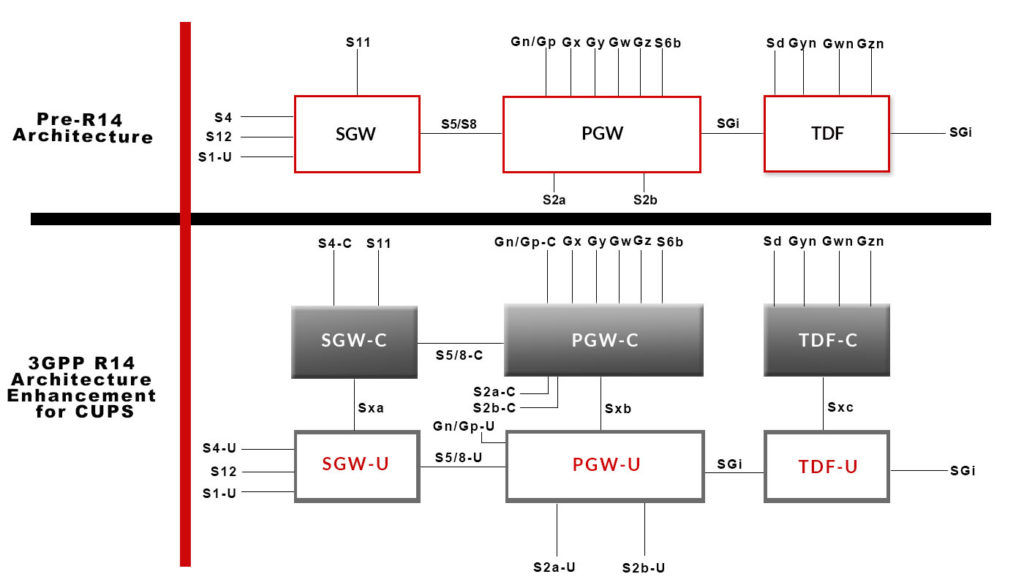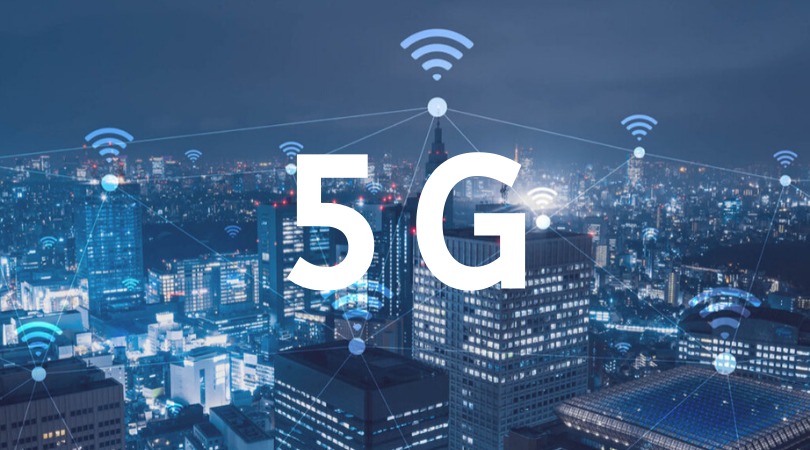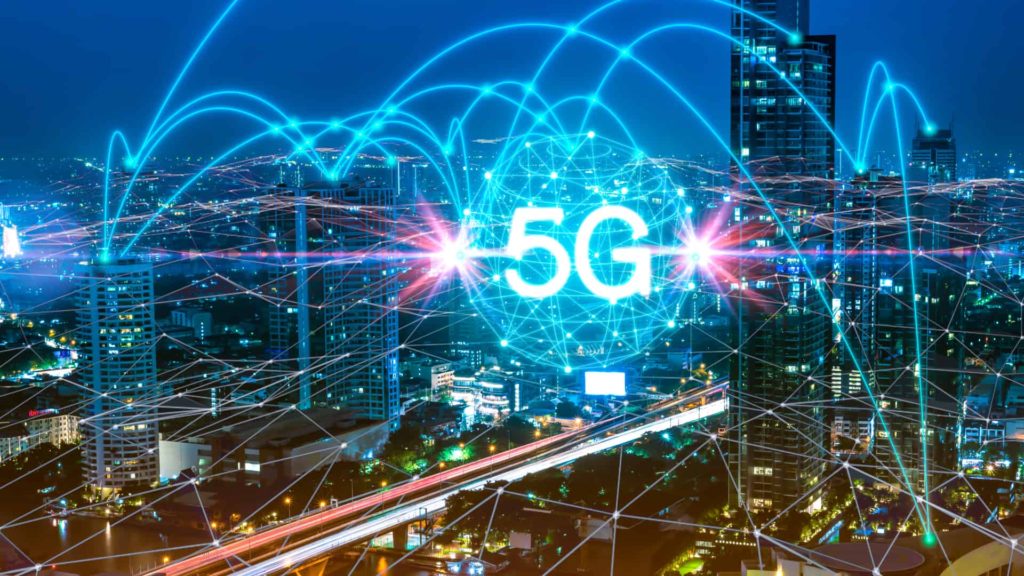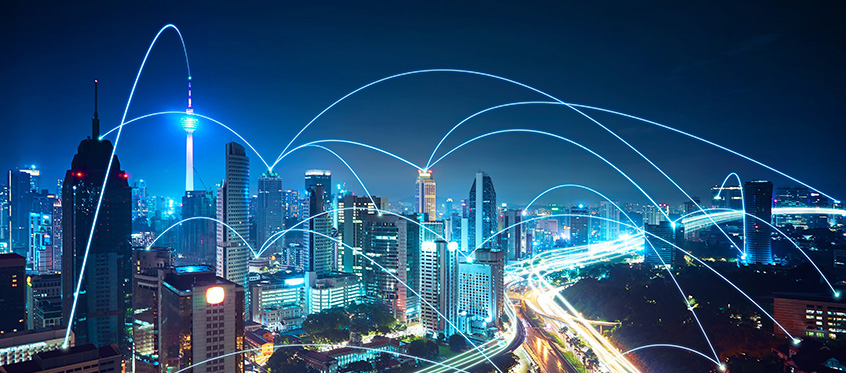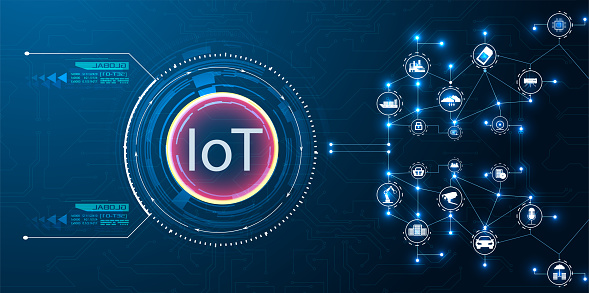With the coming of the new 5G ecosystem, a new technology and business world will begin to unfold. 5G networks are expected to transform various aspects of our daily lives from communications, and transportation to healthcare services. With 2019 being the year of the 5G official launch, estimates have already begun regarding the contribution of the new 5G technology to the global economy and the different industry sectors.
New 5G services may range from self-operating vehicles, and connected devices, to the next generation of robots, whose skills may even go way beyond ours. This new era in networks is expected to bring new products and services to market. It is estimated that 5G will transform whole industries and create new business opportunities.
More than just faster speeds
5G technology promises an unparalleled leap in broadband speeds compared to previous mobile networks. 5G will eventually be 10 to 100 times faster than previous technologies, allowing for example users to download long movies in just a few seconds.
But when it comes down to the new 5G network, we are not just referring to high speeds on the Internet but about a whole new spectrum of technologies. With 5G, the user will always have an on-line, high-quality, cloud-based content including games, 5G VR/AR applications, 4k/8k videos, and more.
The 5G smartphone will act as a network gateway and as a terminal connected with almost unlimited resources in the cloud. It is expected that such technological availability and harmonious coexistence with the cloud will lead to the development of innovative applications that will change the current way of using the Internet and digital technologies.
5G and critical services
5G technology will reduce the time delay and improve overall network response. In addition, by improving the network architecture, the requirement for a total time delay of less than 5ms will be achieved.
The most important feature of the new 5G networks is Ultra-reliable low latency communications (URLLC). These type of services will lay the foundations for automation of applications across industries, machine-to-machine communication, and public safety applications. All previous mobile communications technologies were unable to provide reliable connectivity, a critical requirement for the overwhelming majority of industrial, automotive, and health applications.
This will help companies reduce their operating costs, and improve their businesses. At the same time, a multitude of groundbreaking applications may emerge, such as stand-alone vehicles, connected drones for product deliveries, telemedicine services, and more. In this way, 5G innovations are considered to lead to economic and social development in entirely new ways.
Regarding the workplace, the new trend will lead to the automation of some tasks that will, in turn, lead to the enhancement of digital interconnection and increased business productivity.
Meanwhile, technology giants have already begun to engage in a race for the new 5G smartphones. A typical example is Huawei putting on evident pressure on competitors like Apple.
5G and the Internet of Things (IoT)
But while in South Korea and some US states the launch of 5G is just around the corner, it will take some time to see significant changes around the globe. The changes will initially be seen in the network of things, known as the Internet of Things. This industry includes all machines and devices that are connected to the Internet. The number of connected devices is estimated to increase with the arrival of the fifth-generation network.
In the near future, the majority of mobile connections will be between machines and not between people. There are many more machines and devices on the planet than people, and the relative ratio difference will continue to grow.
Already today, IoT services are gradually emerging into a significant revenue source for wireless network providers, but there is still room for improvement. Conventional network technologies, even LTE, are unable to manage millions of connected devices per square kilometer. The role of 5G is to manage the IoT market in terms of delivering a higher level of security and significantly increased capacity, ie, a larger number of simultaneously connected sensors. Therefore, 5G is considered a strong foundation for the development of IoT.
5G in Car and health industries
The car industry will not remain unaffected by the 5G, as already the future of the transport industry is building towards self-automated vehicles. Furthermore, large companies from Apple to Uber are aiming to manufacture motorized vehicles with some of them already tested on city streets. Something similar will also happen in the health sector. It is not unlikely that at some point when we are sick to order from our home a mobile stand-alone clinical unit that will provide automated diagnostic tests and will allow us to make a teleconference with the doctor.
With advanced data rates and robotics, changes will be made to processes that require deep medical knowledge. Robots will be able to participate in telesurgery. This means that some surgical procedures can be performed remotely, while others may be partially or fully automated. Such a change can bring benefits to disabled or elderly people, or those who live mainly in the countryside, in areas where such services are sometimes inadequate.
E-sales business
The 5G network is expected to drive e-sales in the following years. This market is about to drastically increase its annual sales of products during the next decade. 5G networks and the ease of electronic transactions will help dramatically towards this direction.
Creating a smart and connected world
In the near future, smart cities and smart homes will take care of our quality of life. Our health will be under the constant care of computers that process signals from sensors in our environment. Packages will be delivered with drones, and public safety will be provided by interconnected, fast response services, with the potential for more effective action thanks to the constant availability of all the necessary information.
The 5G race
It is evident from the turmoil in their trade relations that the two superpowers, the US and China, are currently competing in this 5G new era. While Trump claims that “5G is a race that America must win”, China wants to conquer the so-called industries of the future as reflected in the Made in China’s 2025 plan. However, while the 5G race is on, the only sure thing is that fifth-generation networks will bring a great benefit to customers and society by providing a more futuristic approach and modernizing the environment which we live in.

